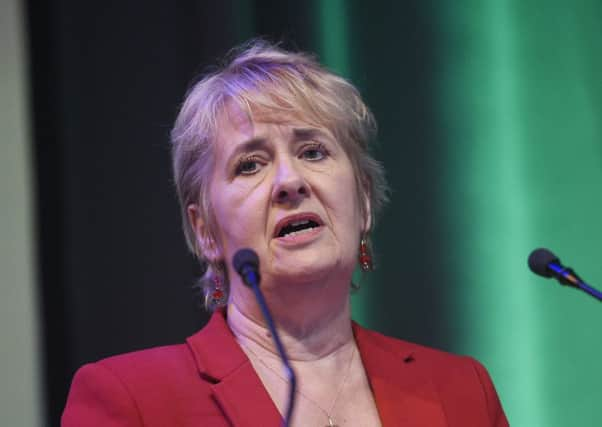Land reform cabinet split welcomed by landowners


When Roseanna Cunningham – who is cabinet secretary for environment, climate change and land reform – was questioned on the farm tenancy issues at a landowners’ conference organised by Scottish Land & Estates in Edinburgh yesterday, she said that she was unwilling to “step on anyone’s toes”.
Stating that the boundaries between her sphere and that of rural economy secretary Fergus Ewing remained “fuzzy”, she indicated that the bulk of the secondary legislation yet to be completed on farm tenancy issues would fall under Ewing’s remit.
Advertisement
Hide AdAdvertisement
Hide AdBut while many in the audience expressed surprise that the split – which had been sought by many in the agricultural sector – was only now being delivered after the act had been passed, SLE chairman David Johnstone said he was delighted at the approach – which he termed “eminently sensible” – stating he looked forward to working with both cabinet secretaries on land reform issues.
“Ideally all these issues would have been sorted out before the bill was passed – and in many respects there is still a deal of harmful uncertainty out there,” he said.
“But while it could be 12 to 18 months for some of the areas, such as the use of productive capacity to set rent reviews, to be finalised and bed into the system, we are keen to work with the administration.”
While the conference’s general theme of communities and bodies involved in land ownership and management working together – and for getting wider recognition for the many areas where this was already happening – drew the sort of concordat sought by both Cunningham and Johnstone, there were some areas of contention.
Cunningham’s assertion that the concentration of land ownership in Scotland in very few hands – “the most concentrated in Europe” – had been one of the driving forces behind the need for reform, Johnstone countered, saying that it was land use and not land ownership which was the important issue. He said that the economies of scale required to run viable businesses in the Highlands were very different to those required in the Lothians.
Both parties, however, agreed that, despite the act being passed, there was still considerable work to be done to ensure it was effectively implemented.